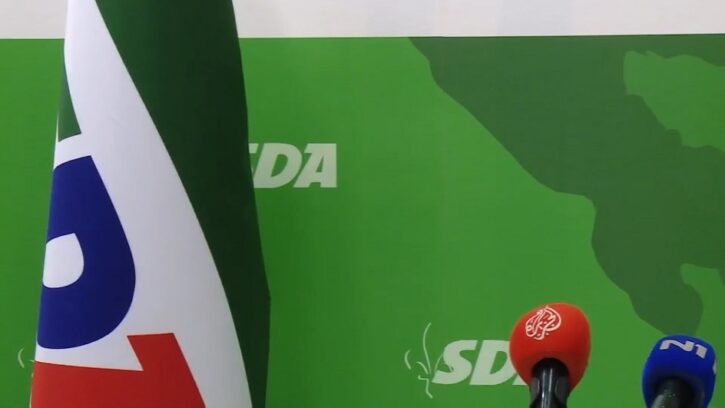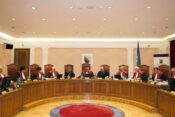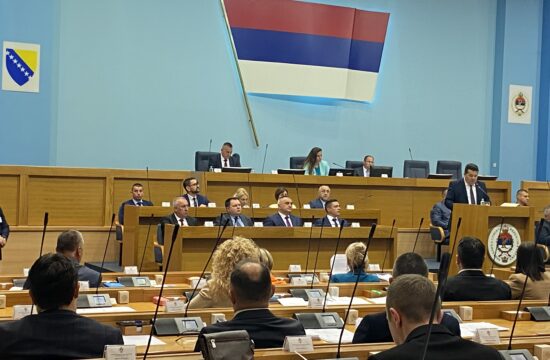
Although Russia used to support constructive efforts in the Balkans, now it has the goal to destabilise the region and use it strategically as a bargaining chip in international relations, the main Bosniak party in the country said following a statement by Russia’s Foreign Affairs Ministry which expressed support on Wednesday for removing foreign judges from Bosnia’s Constitutional Court.
MPs from the strongest Bosnian Serb and Bosnian Croat parties in the country have on recently submitted a proposal for a law that would remove foreign judges from the country’s Constitutional Court.
According to Bosnian Serb leader Milorad Dodik, the adoption of the law is a condition for ending the latest political crisis that emerged in Bosnia following a Constitutional Court ruling.
Last month, the parliament of the Serb-majority semi-autonomous part of Bosnia, Republika Srpska (RS), instructed RS representatives in state institutions to stop participating in any decision-making processes until a law removing the foreign judges from the Constitutional Court is adopted.
This means that state institutions will effectively be blocked.
The move came after the Constitutional Court declared that public agricultural property in Republika Srpska should be owned by the state and not by the RS.
According to the Constitution, which is part of the 1995 Dayton Peace Agreement, the Constitutional Court is composed of nine judges – two Bosniaks, two Croats, two Serbs and three foreigners. The foreign judges are named by the President of the European Court of Human Rights.
Dodik has been accusing the institution of working against Republika Srpska, arguing that the three foreign judges frequently side with the Bosniaks and outvote the Croats and the Serbs.
According to the new proposal, the tripartite Presidency would name three Bosnian nationals to serve as judges in the Constitutional Court. Two would come from the Federation (FBiH) and one would come from the Republika Srpska.
The three judges would have to be members of different ethnic groups and the House of Peoples would then have to confirm their appointment – with more than half of the MPs in each of the three constituent people’s groups voting in favour.
According to Russia’s Foreign Affairs Ministry, Bosnia’s peoples should resolve their issues on their own without any foreign interference. The proposed changes of the Constitutional Court are “fully in accordance with the Dayton Agreement,” the Ministry said.
“We count on all leading political forces in Bosnia and Herzegovina to contribute to this legislative initiative which is focused on strengthening the integrity and the democratic potential of Bosnia and Herzegovina,” it said.
The Party for Democratic Action (SDA) criticised Russia for, “on the one hand, declaring that they are opposed to foreign interference in Bosnia’s internal issues, while at the same time they took a stance on ongoing issues in Bosnia and Herzegovina, continuously supporting anti-Dayton (Agreement) requests and ultimatums coming from the RS entity.”
Such a stance has been an obstacle to finding a compromise in Bosnia as it encourages Milorad Dodik to continue his activities, the party said.
“The Russian Federation has for decades constructively contributed through the Security Council and the Peace Implementation Council, supporting the establishment and the work of the Hague tribunal and the use of the Bonn powers, but that policy has obviously changed and now its goal is to destabilise Bosnia and the region in order to make trades in geopolitical relations,” it said.
“Considering that Russia’s interference is open and direct, this represents a clear message to our partners, most of all to Washington but also to Brussels, that they must not allow Moscow to damage the strategic interests of the region – stability and progress toward NATO and the EU – through local anti-European and anti-NATO political parties,” the party concluded.





